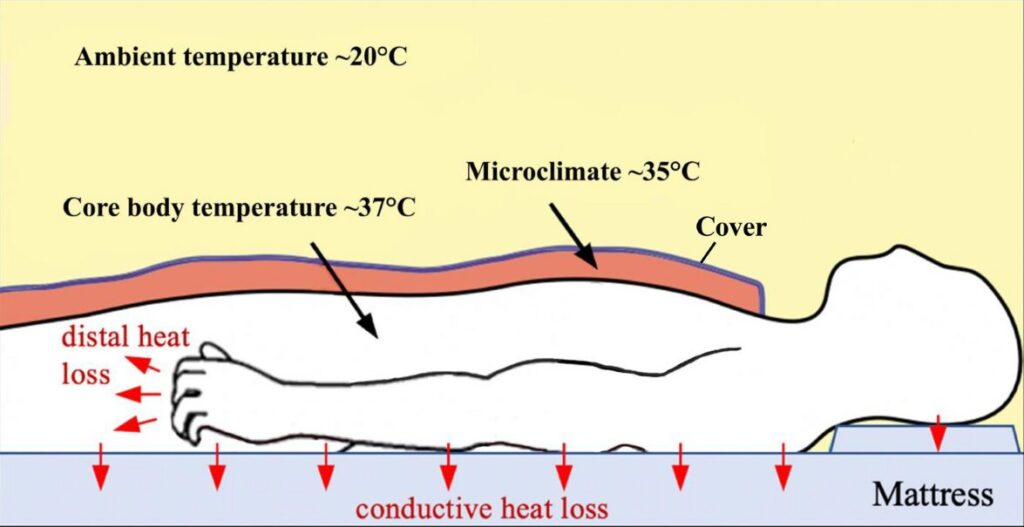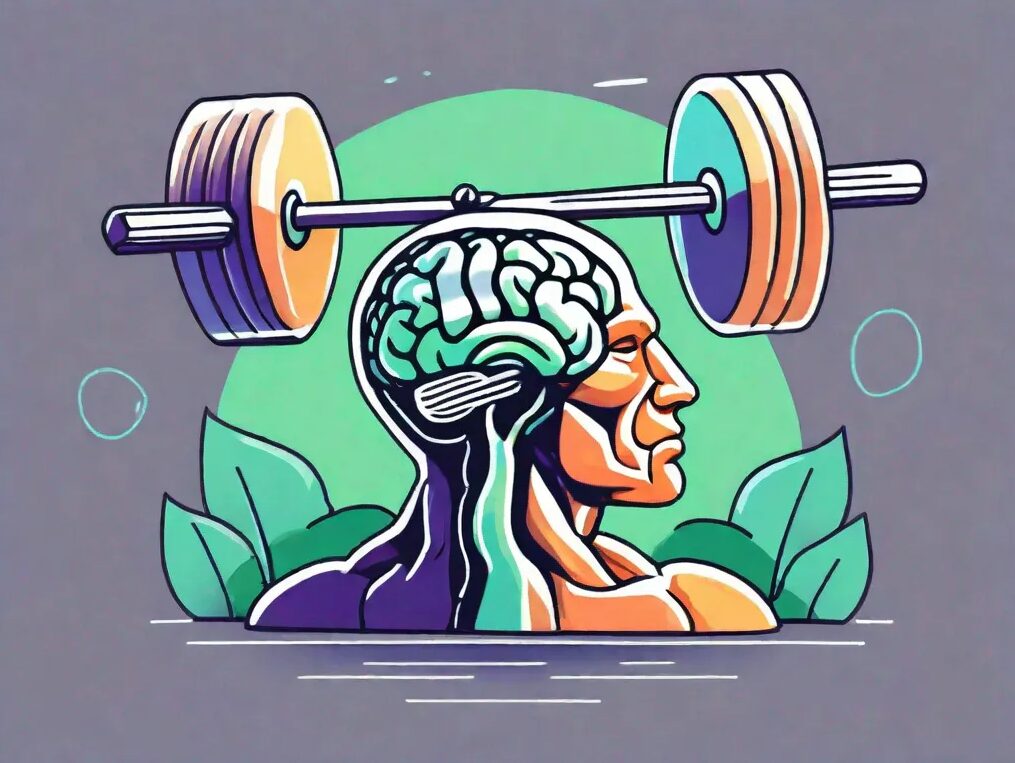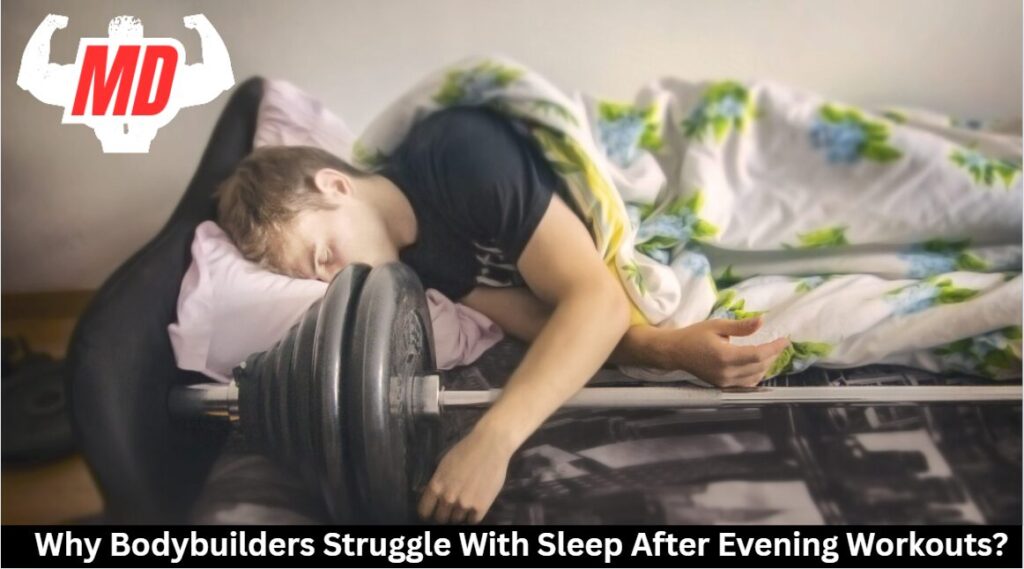Evening workouts disrupt your sleep because they spike cortisol and raise your core temperature when both should be naturally declining. Your body can’t properly produce melatonin with elevated cortisol levels, while the heightened metabolic rate and neurological hyperarousal keep you alert. Post-workout nutrition timing compounds these issues if protein or supplements are consumed too close to bedtime.
Understanding these physiological barriers can help you design better training and recovery schedules.
Cortisol’s Nighttime Disruption
While most people understand that exercise affects their energy levels, many bodybuilders don’t realize how profoundly evening workouts disrupt their hormonal balance. When you train intensely at night, your body experiences significant cortisol spikes. This hormonal surge interferes with melatonin production, fundamentally telling your brain to stay alert when it should be winding down.
Your body’s hormone regulation system becomes confused, sending mixed signals that prevent deep sleep onset. The resulting poor sleep quality directly impacts your recovery process, undermining the muscle growth you’re working so hard to achieve. Your body repairs tissue primarily during deep sleep phases, so when cortisol remains elevated and melatonin suppression occurs, you’re inadvertently sabotaging your own gains.

Core Temperature Elevation and Sleep Onset Delay
After completing an intense evening workout, your body’s core temperature remains considerably elevated for hours, creating a major obstacle to falling asleep. Your brain naturally initiates sleep when core temperature drops, but intense resistance training keeps you running hot long after you’ve left the gym.
This elevated core temperature works alongside your heightened heart rate and activated sympathetic nervous system to create the perfect storm for delayed sleep onset. While your mind might feel tired, your body is physiologically unprepared for rest. This disruption interferes with post-workout recovery processes that depend on quality sleep to maximize muscle repair and growth.
You’ll need to allow at least 2-3 hours between your final set and bedtime to give your body temperature adequate time to normalize.

Neurological Hyperarousal and Racing Thoughts
Beyond the physical heat your body generates, intense evening workouts trigger significant neurological hyperarousal that can keep your mind racing well into the night. Your nervous system remains in “fight-or-flight” mode, with elevated cortisol levels sustaining this heightened alertness when you should be winding down.
You’ll likely experience intrusive thoughts about your workout performance, next day’s training plans, or even general life stressors. All amplified by your stimulated brain state. This mental activity directly interferes with your ability to enter deep sleep cycles, where most recovery occurs. Even your post-exercise nutrition choices can worsen this effect, especially protein supplements containing tyrosine, which increases alertness.
Consider gradually decreasing workout intensity in evening sessions and implementing a deliberate cooldown period to help your brain shift from performance mode to rest.

How Post-Workout Meals Affect Sleep Quality
What you consume after evening workouts directly impacts your sleep quality just as much as the workout itself. When you down protein shakes too close to bedtime, your digestive system remains active, potentially causing discomfort that prevents deep sleep.
The timing of these post-workout meals matters greatly. Consuming heavy proteins within an hour of sleep can elevate your metabolic rate when it should be slowing down.
Caffeine-based pre-workouts pose an even greater challenge, as their stimulants can remain in your system for 6+ hours. Smart nutritional timing means scheduling your protein intake at least 90 minutes before bed and avoiding pre-workouts after midafternoon. Consider slower-digesting proteins like casein earlier in the evening, saving whey for daytime workouts when sleep won’t be compromised.
Balancing Evening Training and Restful Sleep
Making recovery as good as it can be means more than just eating healthy foods; it also means making sure that sleep and muscle growth work together. When you work out at night, you’re fighting your body’s natural processes that help you wind down, which could hurt your rest and recovery.
To make up for this, create a set routine before bed that tells your body it’s time to switch from training mode to recovery mode. It includes turning down the lights, staying away from screens, and doing relaxation exercises for 60 to 90 minutes before bed. Keep in mind that getting up at the same time every night can cause overtraining, which will undo all the hard work you did in the gym.
Your muscles don’t get bigger when you work out. They get bigger while they sleep. For serious bodybuilders, getting enough sleep is just as important as working out.
Frequently Asked Questions
Does Melatonin Supplementation Help Offset Post-Workout Sleep Disruption?
Yes, melatonin supplements can help offset post-workout sleep disruption by countering delayed natural production. You’ll typically experience faster sleep onset when taking it 30-60 minutes before bedtime after evening training sessions.
Can Certain Types of Training Cause Worse Sleep Issues?
Yes, high-intensity training and heavy compound lifts stimulate your CNS more than isolation exercises, causing greater cortisol spikes and nervous system activation. You’ll notice worse sleep disruption after leg days or intense HIIT sessions.
How Long Before Bedtime Should Bodybuilders Stop Consuming Protein?
You should consume your final protein shake or meal 1-2 hours before bedtime. It gives your body enough time to begin digestion without disrupting sleep through metabolic activity or nighttime bathroom trips.
Do Sleep Tracking Devices Help Bodybuilders Optimize Recovery?
Yes, sleep trackers can help you monitor sleep quality, identify disruptions from evening workouts, and adjust your training schedule accordingly. They provide data on deep sleep cycles essential for your muscle recovery and growth.
Are Morning Workouts Better for Muscle Growth Than Evening Sessions?
Morning workouts can support better muscle growth since you’ll sleep better at night, allowing ideal hormonal balance and recovery. Evening sessions may compromise growth if they disrupt your sleep quality and recovery cycles.



